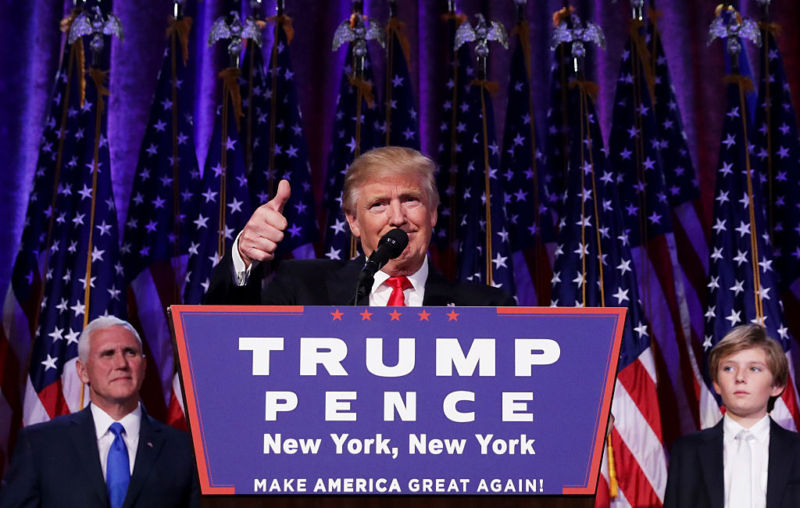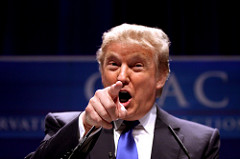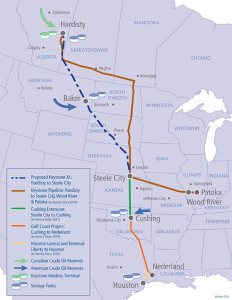100 Days of Trump: America’s Protector
 https://cdn.arstechnica.net/wp-content/uploads/2016/11/trump_win-800x508.jpg
https://cdn.arstechnica.net/wp-content/uploads/2016/11/trump_win-800x508.jpg
The second goal of Trump’s 100 day plan is to address protections for American workers. He intends to do this by ending free trade agreements and increase funding for energy projects involving fossil fuels. The title of America’s protector draws on rhetoric used to stoke the flames of anti-immigrant and anti-trade that was seen at many of his rallies. Trump’s idea of protecting American workers is to implement aggressively isolationist policies in an attempt to withdraw America from the world economy. It is especially important to examine these policies because many voted for Trump because he promised to create jobs and improve the economy, but his protectionist policies will do exactly the opposite.

Several anti-trade policies are a central part of Trump’s platform. First, he plans to either renegotiate or withdraw from both the North American Free Trade Agreement (NAFTA) and the Trans-Pacific Partnership (TPP). However, renegotiation seems unlikely, as Trump’s rhetoric has pushed American interests over multilateral ones, making it difficult for other countries to find common ground. Withdrawing from NAFTA and other free trade agreements would most likely cause a significant economic downturn because of U.S. reliance on foreign goods and markets. Withdrawing from the TPP, however, won’t have tangible economic effects because it hasn’t been ratified. With both Republicans and Democrats adopting anti-trade rhetoric, it will likely fail, but this hinges on whether the Republican Party’s inclination to stand behind Trump or stick to their long held belief in globalization and free trade takes precedent. Next, Trump says he will have the Secretary of Commerce and U.S. Trade Representative identify all “foreign trading abuses” that unfairly impact America. It is not clear exactly what this means, but it implies reexamining deals like NAFTA and other free trade agreements. America depends on other countries as both markets for American imports and sources of goods for American consumers. If Trump’s government views this as “unfair” because of the trade deficit, leading to a revaluation of current trade policy, the cost of many goods could rise significantly. While it may be easy for Trump’s administration to identify these perceived abuses, it is unclear what would be done about them. Any legislation would have to go through Congress before being ratified, which could go either way depending on what the Republican stance on free trade becomes under Trump.
Trump has capitalized on the frustration of people working in well-paid manufacturing jobs that have moved overseas because of cheaper wages and fewer regulations to bolster his campaign. The spike in the movement of jobs overseas was coupled with and a consequence of America’s increasing involvement in free trade. At the same time, the number of welfare programs in the U.S. had been cut. Consequently, when people did lose their jobs, they were hit harder by the Great Recession. While programs like NAFTA appear to have created jobs and growth, this growth has not been equally distributed and disproportionately benefited those who were already well off. Lack of accessible welfare programs has lead to the decline of the lower middle class. At this point, it would be impossible to sustainably withdraw the U.S. from these trade deals. Beyond the economic effects, withdrawing from both NAFTA and the TPP could lead to a loss of respect from America’s allies. It is unlikely that lost manufacturing jobs would return, but it would also hurt the economy as prices of goods increase, possibly leading to another recession that would hurt those it intends to help the most. Trump’s ideas about trade deals that benefit the U.S. are vague and unclear, and will likely be manipulated at the Trump administration’s convenience and enforced inconsistently by Congress.
Trump also wants to have China labelled a currency manipulator, which regards keeping the Chinese Yuan undervalued to encourage foreign businesses to invest in the Chinese economy. According to a report issued by the Treasury Department earlier this year, such a label would mean that China would be asked to boost the value of the Yuan at the risk of the U.S. filing a report with the IMF, instituting high tariffs, restricting access to American financial assets, and cutting or reevaluating existing trade deals. Ending trade deals and raising tariffs could be disastrous because America is heavily dependent on Chinese goods. Many items that we rely on to be affordable could drastically increase in cost, throwing the country into another recession. This refers back to issues surround isolationism that I previously mentioned. In addition, it is not definitive whether or not China is a currency manipulator and if this actually has any negative effects for its trade partners. Furthermore, much of the U.S. debt is to China and this could be used to “default” the American economy – but countries cannot seriously do this without losing the respect and trust of most of the world. This would severely damage our economy by decreasing lending and investment in the country. It would also likely have a ripple effect on China, who we owe our loans to and much of the world. President-elect Trump, may find that declaring bankruptcy is a tool to avoid personal debts, but it cannot be done on an international level to the same effect. It will damage both our economy and everyone we do business with.

The next three points of Trump’s plan all target environmental and energy issues. Trump wants to lift restrictions on fossil fuels to create jobs, approve energy projects like the Keystone Pipeline, and cancel all payments to U.N. climate change programs to be spent at home. The funding of the fossil fuel development and the Keystone Pipeline will create jobs in the short term, but show a disregard for the environment and climate change issues that are important to preserve the United States in the long run. These policies will likely get passed by a Republican majority that has rarely backed climate change prevention. This is in line with Trump’s appointment of a climate change skeptic to the EPA, as is cancelling funding to U.N. climate change programs, which would undermine climate change agreements and prompt others to follow. Without western countries that produce much of the world’s greenhouse gas emissions, the fight against climate change would quickly come to an end. The countries and people who will be hurt most are those in poverty who do not have the resources to fund these programs to begin with. Under the Obama Administration, America has been a leader in fighting climate change, and it is important that the U.S. continues to take this role for the benefit of America and the world. Trump’s policies are concerning, though not surprising for the Republican Party. While such economic plans fall under the guise of protecting American workers, they make use of short-term programs that will prove to be dangerous for the United States and Americans in the long run.
Trump’s protection of American workers seems to be based on two misguided ideas: that free trade is inherently harmful to the American economy, and climate change is unimportant to the well-being of the country. The first appeals directly to his voting base, but in reality will likely cause the price of many goods to soar and have massively negative economic ramifications. His disregard for climate change is concerning, as the effects of global warming can already be seen in increased prevalence of extreme weather conditions. Furthermore, money spent to create jobs in oil and nonrenewable resources could be spent on projects focused renewable resources that would still create jobs and protect America’s future. Trump’s plans will not fix the economy and will likely hurt American workers. Americans must fight against these policies at every opportunity in order to secure the future of the country.
